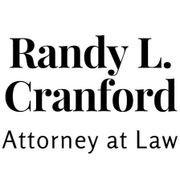How Do Aggravating & Mitigating Factors Affect Sentencing?

When someone is convicted of a crime, the judge presiding over the case must determine an appropriate sentence. To make this decision, the court not only takes into account the specific charges, but also any aggravating or mitigating factors that demonstrate the severity of the offense. These elements can have a significant impact on the punishment that’s assigned. If you've been charged with a crime, here's what you should know about how these factors affect sentencing and what an attorney can do to help you avoid harsher penalties.
What's an Aggravating Factor?
The law defines most crimes as felonies or misdemeanors and identifies proper punishments, such as a fine or jail time, for each one. However, when aggravating or mitigating factors are present, the standard sentence can be either enhanced or reduced.
Aggravating factors are circumstances that increase the seriousness of a crime. This may include the defendant having a prior criminal record, committing the offense in front of children, evidence of premeditation, using a weapon, targeting vulnerable victims, or causing another person bodily harm. In turn, aggravating factors may result in stricter penalties.
What's a Mitigating Factor?

Mitigating factors are any details that lessen the severity of the crime and the defendant’s culpability. Some examples include lack of previous convictions, proof the offense was committed under duress, playing a minor part in the crime, showing remorse, or having a mental disability. An experienced attorney will focus on gathering evidence that demonstrates mitigating factors and refutes the prosecutor’s claims of aggravating factors to try to have your sentence reduced or the charges dropped.
If you’re facing criminal charges, turn to Randy L. Cranford Attorney at Law in Thomasville, NC, for trusted advice and representation. He’ll leverage his 40 years of legal experience to strengthen your defense and achieve the most favorable outcome possible for your case. This attorney has a vast understanding of the law and is proud to aggressively advocate on behalf of clients throughout Davidson County. Call (336) 476-3115 to schedule a free consultation, or visit him online to learn more about his services.
About the Business
Have a question? Ask the experts!
Send your question

